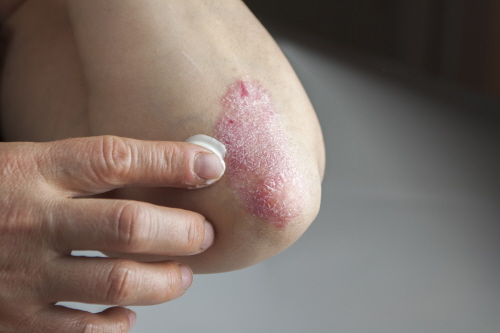In a new study published in the Journal of Allergy and Clinical Immunology, a team including Trinity scientists have discovered that certain types of bacteria appear to be anti-inflammatory and protect against the effects of eczema.
In a collaborative project funded by the National Children’s Research Centre, researchers from Trinity’s School of Medicine, University College Cork (UCC), the University of Dundee and the National Institutes of Health followed a cohort of patients in their first year of life, regularly sampling their skin microbiomes. These infants were part of a larger cohort of longitudinal birth research subjects called the Cork BASELINE Cohort.
Eczema, also known a atopic dermatitis (AD), is the most common skin disease affecting children from developed societies. AD is associated with intense itching and loss of sleep in early years of development, as well as with food allergies and asthma later in life and the purchasing of a near endless supply of over-the-counter eczema treatment, in a desperate attempt to find one that works.
The origins of AD are not as of yet fully known, but it is known to involve a complex interaction between the skin barrier itself, involuntary and voluntary immune responses and the microbiome – the collective name for the community of organisms that live on our skin.
It was known that eczema is closely linked with the bacteria Staphylococcus Aureus (SA) which drives flares and exacerbations of AD. However, it was not known whether colonisation of the skin by SA preceded eczema, or vice versa.
The study group, led by Professor of Dermatology, Alan Irvine, have been able to show that colonisation of Staphylococcus did not come before the development of AD.
The group were also able to show that several species of Staphylococcus actually appeared to protect against eczema after a year.
This important preliminary breakthrough in the area suggests that related bacteria of SA may be protective against eczema and act as anti-inflammatories.
Irvine said in a press statement that this work is “the first study that has followed babies at several time points in their first year of life and examined the bacterial communities of their skin at this early stage”.
“Our findings suggest that while the relationship between these skin bacterial communities and development of disease is complicated, we have shown for the first time that some bacteria may help prevent skin inflammation in these very young children”, he continued.
However, Irvine did emphasize that such work is only scratching the surface in this area: “Our work is an early discovery, future work will hopefully clarify how these works and determine if we can harness to prevent disease.”







